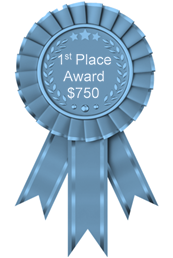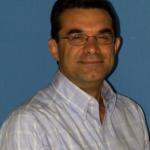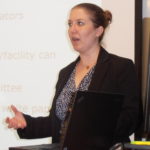GHTC 2021 is pleased to announce these program updates:
 Program Guide available for download
Program Guide available for download
Workshops:
 Distributed Energy meets Humanitarian Needs, by IEEE Standards Association (Tuesday)
Distributed Energy meets Humanitarian Needs, by IEEE Standards Association (Tuesday)
The emphasis is now shifting toward a more decentralized energy infrastructure, where a mix of dispersed and low-carbon, renewable energy sources such as solar, wind, geothermal, fuel cell, and battery installations – collectively called distributed energy resources (DER) – are integrated with the large centralized power plants in the power grid.
Several trends are driving this transformation. Society’s desire for more sustainable ways to produce energy have spurred R&D advances, and many new products for DER applications, along with growing use of these systems, are already deployed in the market. In turn, their greater performance and expanding functionality have led to new regulations which have created compelling new business opportunities.
More recent focus on Stand-alone or remote systems or electric power in areas that do not have reliable electric delivery. These areas include application tiers, microgrids and DC systems.
Presenters: Mark Siira and Wayne Stec, IEEE Standards Association SCC 21 and Panos Moutis, CMU
Plenary Speakers:
 Meet the Editors: Thinking About Publishing for a Transdisciplinary Outlet: What do you need to know? (Tuesday, 3:00 – 3:45 PM (PT)
Meet the Editors: Thinking About Publishing for a Transdisciplinary Outlet: What do you need to know? (Tuesday, 3:00 – 3:45 PM (PT)
Katina Michael, founding Editor in Chief and Roba Abbas, co-editor, the IEEE Transactions on Technology and Society.
Panels:
 Think Global, Act Local: Fostering Engineering Knowledge and Capacity for Impact (Friday 1300-1400 (PT))
Think Global, Act Local: Fostering Engineering Knowledge and Capacity for Impact (Friday 1300-1400 (PT))
An international panel organized by Engineering for Change (E4C):
Moderator: Iana Aranda, Director, Engineering Global Development, ASME and President, Engineering for Change
Panelists:
- Kathleen Kirsch, Engineering Officer, USAID (Egypt)
- Nishant Agarwal, Founder & CEO, Life and Limb (P) Ltd., (India)
- Fernanda Petrus, Architect and Ph.D. candidate, Coimbra University (Portugal)
- Thomas Da Jose, (Australia)
- Abdul Rashid Mussah, Graduate Assistant at the University of Missouri-Columbia (USA)
Complementary access to Plenary sessions
Meet the Editors: Thinking About Publishing for a Transdisciplinary Outlet: What do you need to know? with Katina Michael, founding Editor in Chief and Roba Abbas, co-editor, the IEEE Transactions on Technology and Society on Tuesday, 3:00 PM — 3:45 PM (PT)
Student Poster Contest: Our 4th Student Poster Contest will be held online Tuesday afternoon from 4-6 PM PT. Cash prizes will be awarded.
Plenary Panels: Four panels on: Aging; Social Media; IEEE’s role in Sustainable Developement; Think Global, and Act Local with E4C.
Plenary Speakers: View the plenary speakers line-up here.
Register via vTools: https://events.vtools.ieee.org/m/284304
NOTE: Complementary access does not include Proceedings nor technical paper sessions.


















